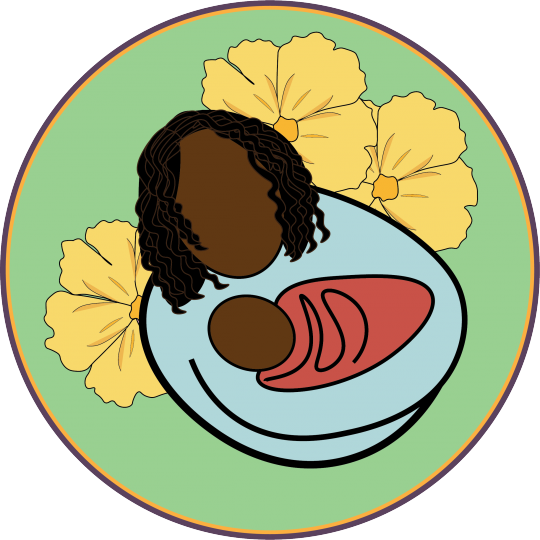Maternal Exposures
This category contains analyses about factors and events that occur during pregnancy that may affect the baby. We are interested in seeing if pregnancy outcomes are associated with specific findings or events during pregnancy such as the use of specific ARV drugs, smoking or alcohol use, and severity of the mother’s HIV disease. From these studies, we will find out how frequently adverse outcomes occur. We will develop an understanding of why they happen so we can reduce their occurrence.
Click here to see an infographic of overall findings from the Maternal Exposures Working Group.
How Much Tenofovir Do Babies Absorb During Pregnancy?
Previous studies have only measured a baby's exposure to medicines at a single point in time using a blood test. Our study used a new approach of analyzing hair samples for measuring how much of the medicine tenofovir a baby had absorbed over the entire pregnancy.
ARVs and Early Birth in Women in SMARTT with Multiple Pregnancies
Previous studies suggest a connection between some HIV medications and risk of premature (early) birth. We wanted to see if among women with multiple pregnancies, there was a connection between babies being born premature, and use of newer medications, such as integrase inhibitors.
Hospital Visits and Infections in Young Children Born to Mother with HIV in the United States
In other countries, children born to mothers with HIV may be at risk for being hospitalized with an infection in their first two years of life. We wanted to see if this was true in the United States as well.
Risk of Poor Pregnancy Outcomes for Three Antiretroviral Medicines
PROMISE was a clinical trial for pregant women with HIV. It took place in India and African countries. In part of PROMISE, women were treated with one of three different ARV regimens. Women on one of these regimens had babies born very prematurely (too early) or with very low birth weight compared to the other two regimens. We wanted to test the findings with our participants in the U.S.
Birth Weight and Early Delivery in Mothers Living with HIV
We wanted to know if babies born to women born with HIV are at risk for being born too early or too small. We compared babies born to women born with HIV with babies born to women who got HIV later in life.
Changes in Blood Cells in Babies Born to Mothers with HIV
Some babies born to mothers living with HIV may have changes in the way their genes work due to antiretroviral exposure in the womb. In this study, we tested babies’ blood for a specific type of genetic change that might affect babies’ blood cells.
Tenofovir Use During Pregnancy and Bone Mineral Content in Babies
In this study, we compared the bone mineral content of two groups of uninfected babies: babies whose mothers took the antiretroviral drug tenofovir during pregnancy and babies whose mothers did not take tenofovir during pregnancy.
Mothers with HIV and Substance Use
In this study, we interviewed mothers with HIV to see if they used alochol or drugs while they were pregnant. We also tested the meconium (first stool) of newborn babies born to these mothers for substance use and compared them to the mother's self-reported use.
Measuring a Baby's Exposure to HIV Medications
In this study, we created a new test to measure a newborn baby's in utero exposure to antiretroviral drugs (ARVs). We tested meconium (baby's first stool) from newborn uninfected babies born to mothers with HIV.
Testing how Well Babies Exposed to HIV Make Energy
In this study, we looked at uninfected babies of mothers with HIV to see if the HIV medicines some mothers took while pregnant affected how their babies make energy. To do this we used a finger stick test to measure lactate, a chemical in the blood. We also compared the results of the finger stick test to a more complicated blood test that is often used to measure lactate to see if the finger test was as accurate.
Please note that this abstract was presented at the Pediatric Academic Societies' Annual Meeting in Baltimore, Maryland on May 2 – 5, 2009.
Safety of Tenofovir Use During Pregnancy
In this study, we looked at uninfected babies born to mothers with HIV who took the drug Tenofovir (TDF) while pregnant.We compared growth rates for babies born to mothers who took TDF while pregnant and babies born to mothers who did not.
Exposure to HIV Medication in HIV-Exposed but Uninfected Babies
In this study, we looked at uninfected children of mothers with HIV who took different types of antiretroviral medications (ARVs) during pregnancy. We looked at how ARV use during pregnancy by women with HIV has changed over time as well as factors linked to combination ARV regimen use during pregnancy.
ARV Use During Pregnancy and Premature Birth
In this study, we looked at women who took antiretroviral medications (ARVs) during pregnancy to see how many gave birth prematurely (before 37 weeks). We also compared women who used ARVs in early pregnancy to women who used ARVs later in pregnancy.
Safety of ART in HIV-Exposed Youth
In this study, we describe the unique "trigger" study design used in SMARTT to evaluate problems in uninfected youth born to mothers with HIV.


